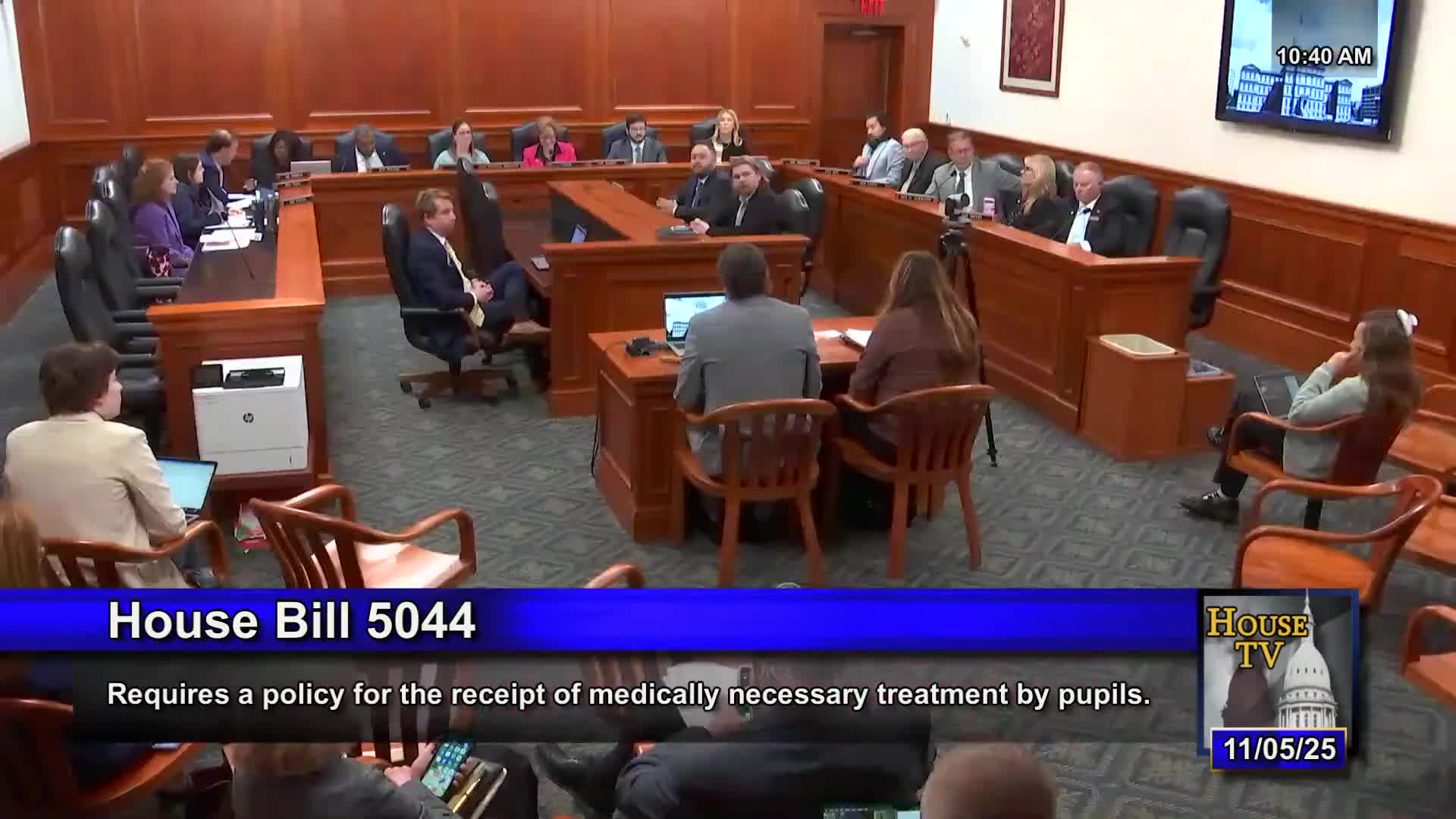Committee hears divided testimony on bill to allow clinical ABA providers in schools
Get AI-powered insights, summaries, and transcripts
Subscribe
Summary
The House Education and Workforce Committee took testimony on House Bill 50‑44, a proposal to allow clinically funded ABA providers to deliver medically necessary services in school settings; witnesses disagreed on whether the bill would clarify access or create conflicts with IDEA and school billing and placement rules.
The House Education and Workforce Committee heard testimony on House Bill 50‑44, a proposal to create an explicit process for clinical, medically necessary applied behavior analysis (ABA) providers to deliver services in school settings. Supporters of the bill argued it gives families a transparent option to obtain medically prescribed services across environments; school administrators and school‑based clinicians warned the bill as written could conflict with the Individuals with Disabilities Education Act (IDEA), create billing and staffing complications, and risk supplanting or crowding out services the district must provide under students’ IEPs.
Eric Hopstock, superintendent, Berrien Regional Education Service Agency, told the committee the bill’s definition—"any medically necessary service"—is broad and could require schools to manage a wider set of clinical services without clear guidance on how to integrate those services with IDEA‑mandated IEP procedures. Hopstock said the bill’s policy mandate that outside providers have a right to observe, collaborate with teachers, and make recommendations “will become problematic” because school teams follow prescribed data collection and decision‑making under IDEA. He provided local context: “we have about 3,600 students in Berrien County eligible for special education; almost 900 have one or more behavioral goals in their IEPs, another 850 have supplemental aids and services addressing behavior, and close to 80 are in intensive behavior intervention plans.”
Kelly Rogers, a school psychologist and board‑certified behavior analyst who works as a special education coordinator, said joint guidance released last spring by the Michigan Department of Education and the Michigan Department of Health and Human Services already provides a roadmap for adding ABA services in schools and emphasizes the IEP process as the vehicle to determine educational needs. Rogers said that when a student requires ABA to receive a free appropriate public education (FAPE), the IEP team has the authority and obligation to provide it, and that the guidance focuses on coordination between clinical providers and school teams rather than creating a separate entitlement that might duplicate services.
Dan Unum, director of the Autism Legal Resource Center (participating by Zoom), urged the committee to distinguish IDEA/FAPE obligations from medically necessary treatment required under the Americans with Disabilities Act (ADA). Unum said case law and interagency guidance in other states (including Colorado, Minnesota and Louisiana) recognize circumstances where medically necessary ABA provided across environments is distinct from services provided under an IEP, and he argued that a clear process can protect both students’ access to treatment and schools’ legal obligations.
Committee members asked witnesses how Medicaid and private insurance billing would interact with existing school‑based billing and whether the bill could increase district costs. Witnesses described two different billing regimes: school‑based Medicaid reimbursement (often structured as a subsidy for school‑employed health staff or school health services) and clinical ABA billing through insurance or Medicaid as a treating service outside the typical school billing model. Witnesses warned of potential “double billing” concerns and said the bill’s language was unclear about how revenue, supervision and liability would be handled if outside providers deliver services during school hours.
Witnesses also raised least‑restrictive‑environment (LRE) concerns, saying that bringing clinical providers into schools without integrating their work into the IEP team decision‑making could result in students being removed from general education settings or having educational time replaced by clinical procedures. Testimony highlighted workforce issues as well: several witnesses noted shortages of certified ABA clinicians and the variety of existing models (school‑employed BCBAs, contracted providers, paraeducators trained as registered behavior technicians).
The committee did not take a final vote on HB 50‑44 during this session. Witnesses and several committee members requested additional comparative materials and clarification—Representative Fax requested a concise chart comparing existing Michigan guidance and practices with the bill’s requirements. Supporters and opponents agreed on the need for clearer operational language around billing, supervision, and the relationship between clinical treatment plans and IEPs.
Representative exchange notable quote (as recorded in transcript): “If a student requires ABA to receive a FAPE, then the IEP team already has both the authority and the legal obligation to provide it,” Kelly Rogers said, attributing the IEP process as the lawful mechanism for school‑based ABA decisions.
The committee recorded written stakeholder positions: a written card in opposition from Andy Newman of the Michigan Education Association and a written support card from Jarette Skowup of the Mackinac Center on an earlier item.
The committee requested follow‑up materials and clarification on how the Michigan Department of Education/MDHHS guidance intersects with the bill’s provisions, and witnesses offered to provide case law and interagency memos to the committee for further review.
